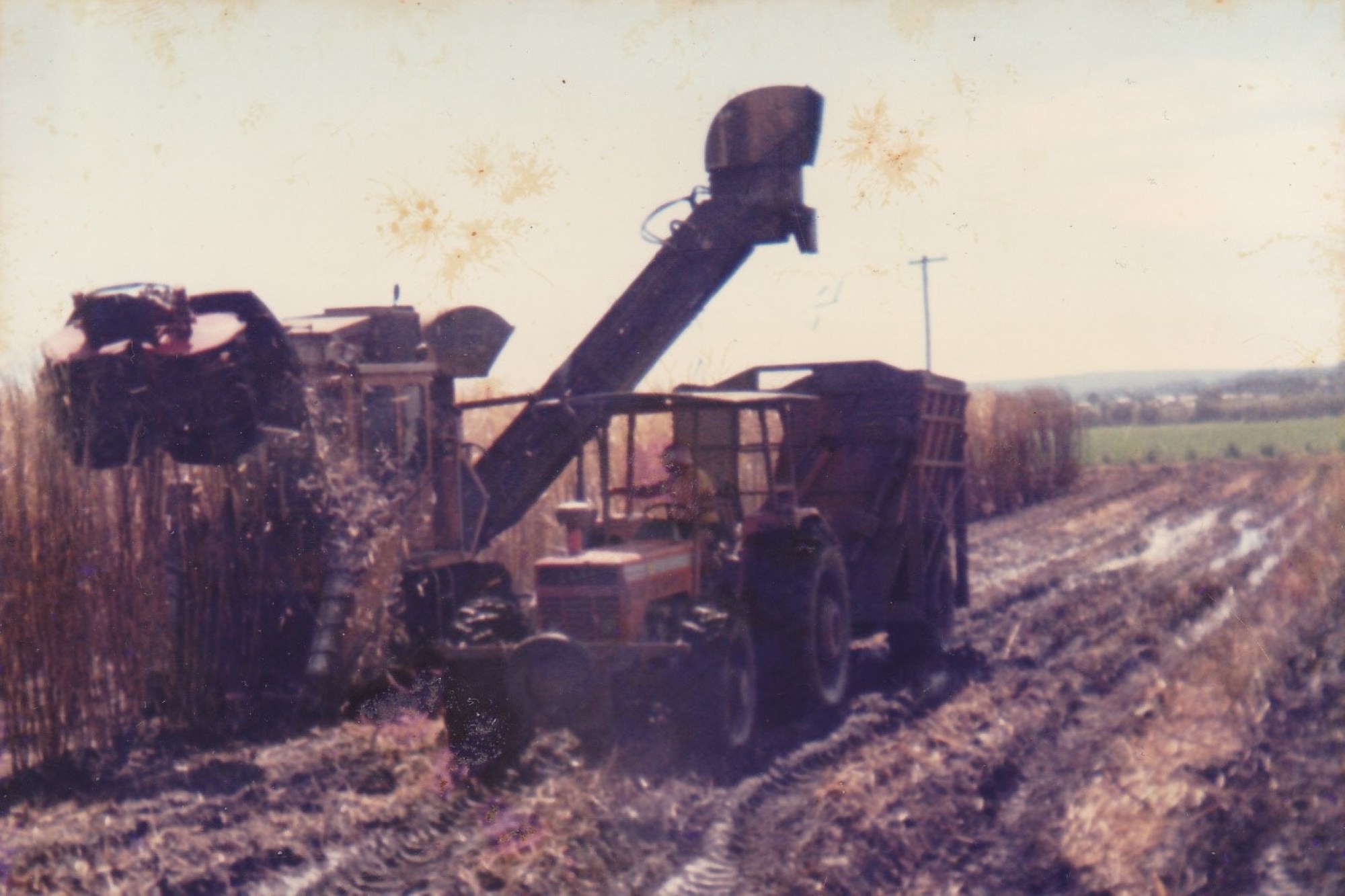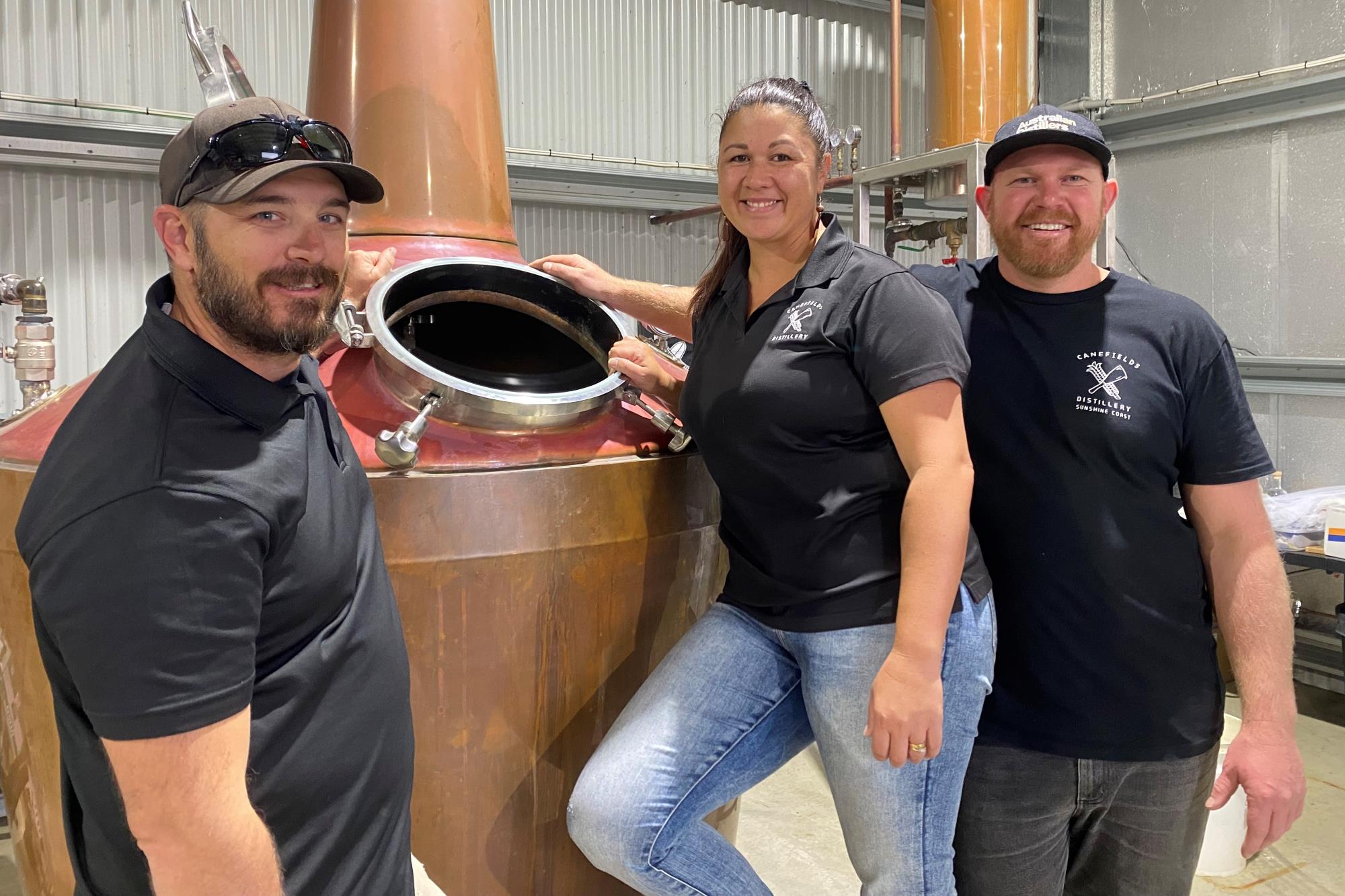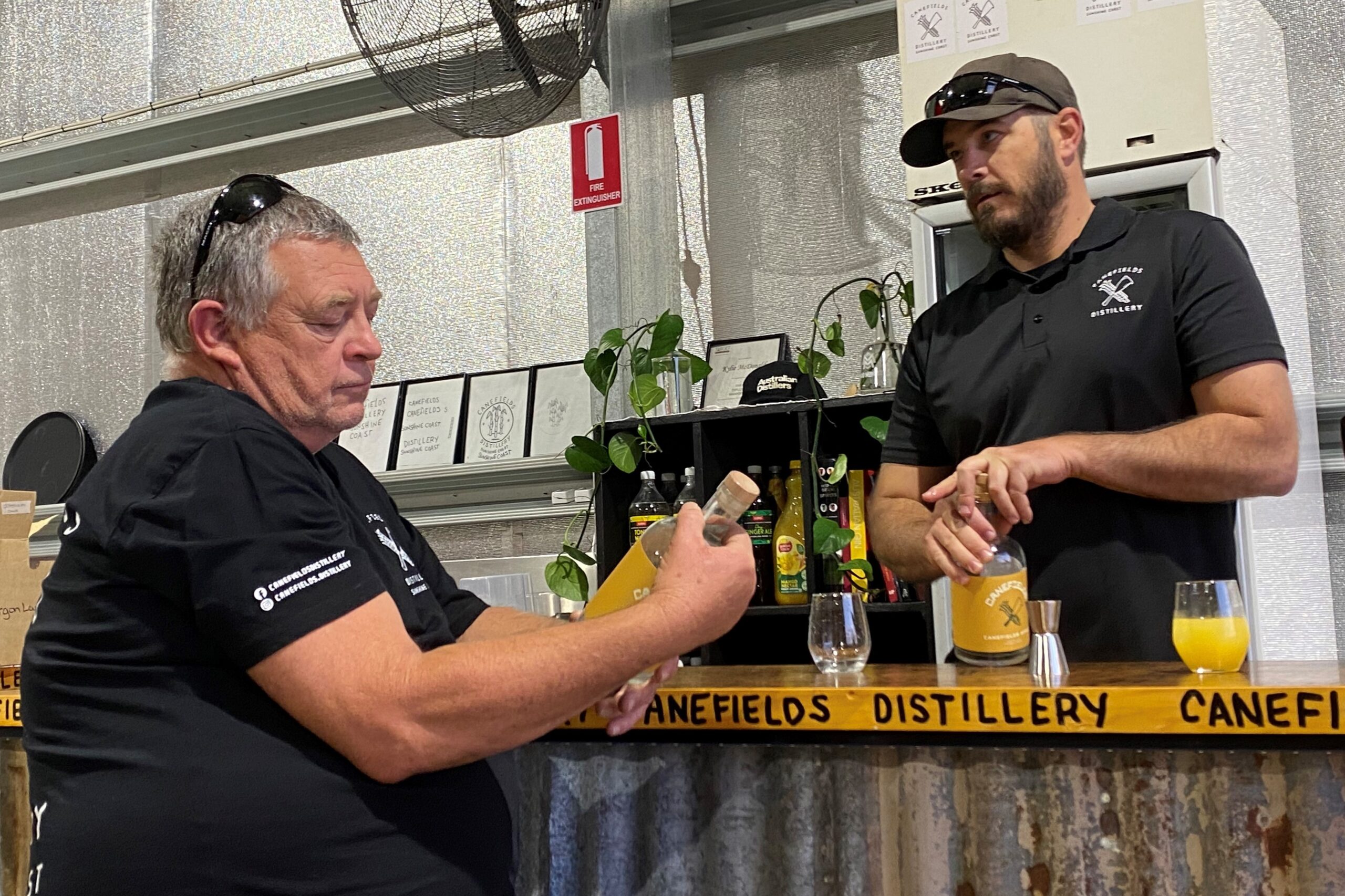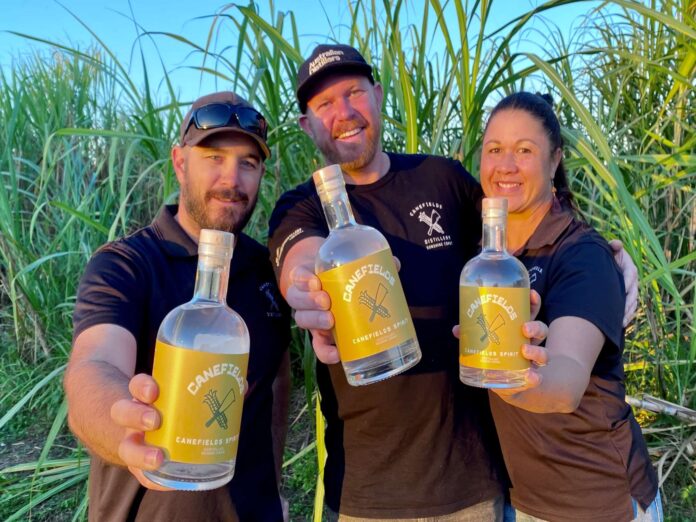Sugarcane is being planted on a Sunshine Coast farm for the first time in 20 years as members of a local family pioneer a new future for the crop in the region.
The cane planted on the Cook family land at Pacific Paradise is not for sugar or molasses, or garden mulch, nor alternative uses such as cattle feed or ethanol.
It is being grown to drink.
Luke, Kylie and Dan have established Canefields Distillery, producing spirits made from sugarcane juice.
The first Canefields bottles, a limited run of cane spirit, went on sale in early May; rum is ageing in barrels; and a range of gin, including Australian dry and navy strength, is on the way.
The distillery grew out of a desire to see weed-filled canefields that farmers could not afford to maintain returned to productivity.
“I hated seeing them like that,” Luke said.
“The thinking was, ‘What’s the highest value we could grow before it goes out the gate?’” he said.
Luke’s uncles, Lindsay and Mick, who is Dan’s father, were open to the idea of a distillery and have allowed the trio to use some of the land they used to farm.

Getting back into growing cane took some work as the best farm machinery had been sold off after the mill closure and all that remained was rusting in the paddocks.
“I reckon the first two years were spent welding,” Luke said.
Dan, who has a farming and mining background, is in charge of growing and runs the machinery; Kylie, a paralegal, has trained to be distiller; and Luke, a town planner, handles marketing and the rest of the business.
They are experimenting with different cane varieties and participating in a university study of heirloom varieties for use in rum production.
The crushing of the cane, done in a second-hand crush at the distillery, is the first time cane has been crushed on the Sunshine Coast since the mill closure.
Luke said being able to grow cane, crush and distil meant they could chart the history of each bottle from the time the cane was planted.
“We’re in a unique position of being able to produce single-source spirits,” he said.
“Each bottle is batch and crush dated and numbered.”
They also plan to experiment with seasonal additions, such as strawberries, for flavour variations.

Luke said the distillery was looking towards wineries as a model, with the potential to bottle specific crushes and batches in the way wineries would sell wines from certain paddocks or years.
The trio, who all work day jobs, are yet to celebrate their first crush or the sale of their first bottles.
“We’ve been too busy,” Luke said.
Lindsay Cook was happy with his first taste of Canfields, made from the Q240 strain and crushed last year.
“Yeah, it’s good. But I’m a cane farmer,” he said, acknowledging some bias.

The distillery has also supplied cane juice to two other distilleries and that is a market the trio hopes to build further.
Luke said the more they sold, the more they could grow, and they would love to see more land growing cane once again.
He hopes to be able to offer tours in the future to educate people about cane, its history in the area and what they are now doing with it.
“Maybe non-alcoholic tours for school students,” he said.
For now, bottles are only available for sale at the distillery door on Finland Road on the weekends. Times, which vary, are posted on Canefields’ social media.
Like stories about Sunshine Coast people doing great things? Help us deliver more by registering for our FREE daily news feed. All it requires is your name and email at the bottom of this article.





